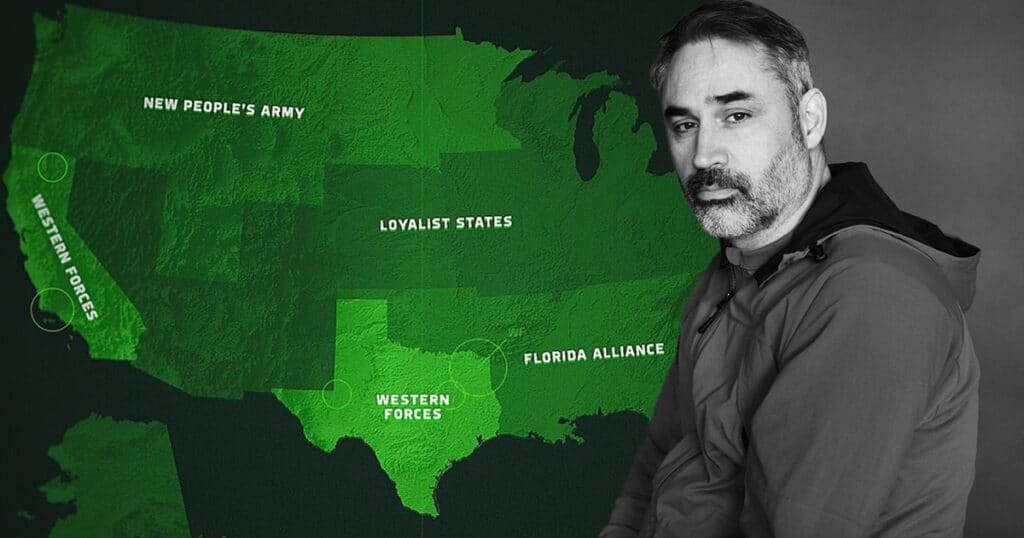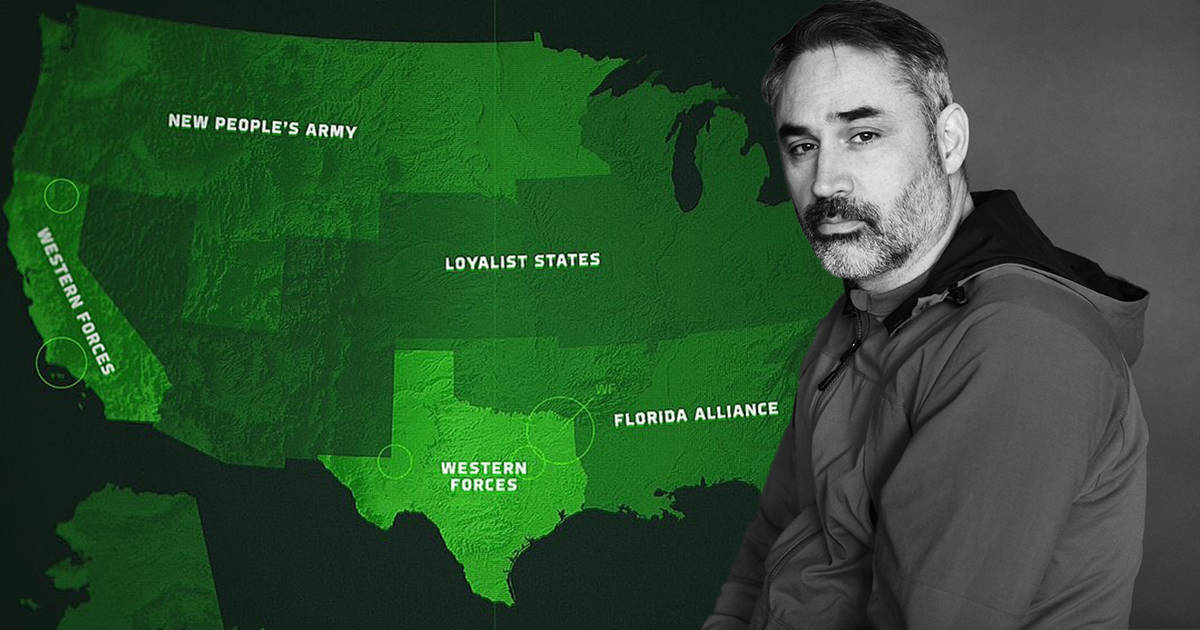Recently, we sat down with Civil War director Alex Garland, who explained why his film makes California and Texas allies.

Alex Garland’s Civil War has proven to be one of the biggest water-cooler movies in recent memory. It’s the movie everyone is talking about, with it posting studio A24’s biggest opening ever, and inspiring plenty of hot takes on social media. Love it or hate it (we loved it), everyone definitely has an opinion on one of the film’s most controversial aspects: the fact that the movie depicts a divided America where California and Texas, two political opposites, have joined forces against the rest of the country.
While many are saying there’s no way a famously red state and a famously blue state would ever join forces, we recently sat down with Garland, who believes that were people to be faced with the rule of a fascist president (as depicted in the film), party politics might not be as important as people think.
“I’m sure it got to read at times like this is some British guy who doesn’t understand anything about American politics,” said Garland, who says he didn’t simply want to make a film that adds to the current, divisive discourse. “Personally, I was trying to make a more subtle point, which is to do with what Texas and California might have in common. And one of the things they might have in common as American states, whatever differences they might have or disagreements within, by the way, what are themselves very complex states individually with all sorts of a range of views within them, is that they might agree that a polarized position is less important than a fascist president.”
He adds, “They could agree on that. They might say that somebody who is corrupt and is undermining systems of checks and balances and is saying journalists will be, you know, shot on sight in DC, that is to say, intimidating journalists or, somebody who has dismantled one of the legal systems that might threaten them.. that that is a more serious problem than their polarization.”
While he agrees that some might not be able to get past their own political POV to agree that such a thing is possible, to him that in itself is problematic. “Their polarization would be more important than a fascist president who was bombing their own citizens. Then that itself is an indictment of polarization because how could your Republican-Democrat status be more important than whether someone is killing their own citizens or undermining the Constitution?”
Garland does state, however, that the film is not meant to be apolitical. “I get how it might seem. It might seem sort of apolitical. It’s not apolitical; it’s just a different form of political; it’s not actually Republican-Democrat. As it happens, I am left-wing, but I have lots of right-wing friends, and I’m very content to have them. I don’t make a value judgment about someone as a person, as a good or a bad person, based on whether they think, whether they believe in a free market or a regulated market.”
Have you seen Civil War, and do you agree with Garland’s thesis? Let us know in the comments below!

